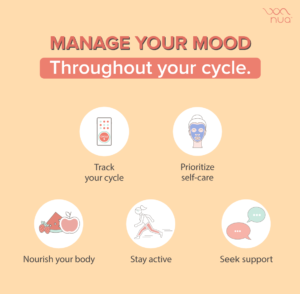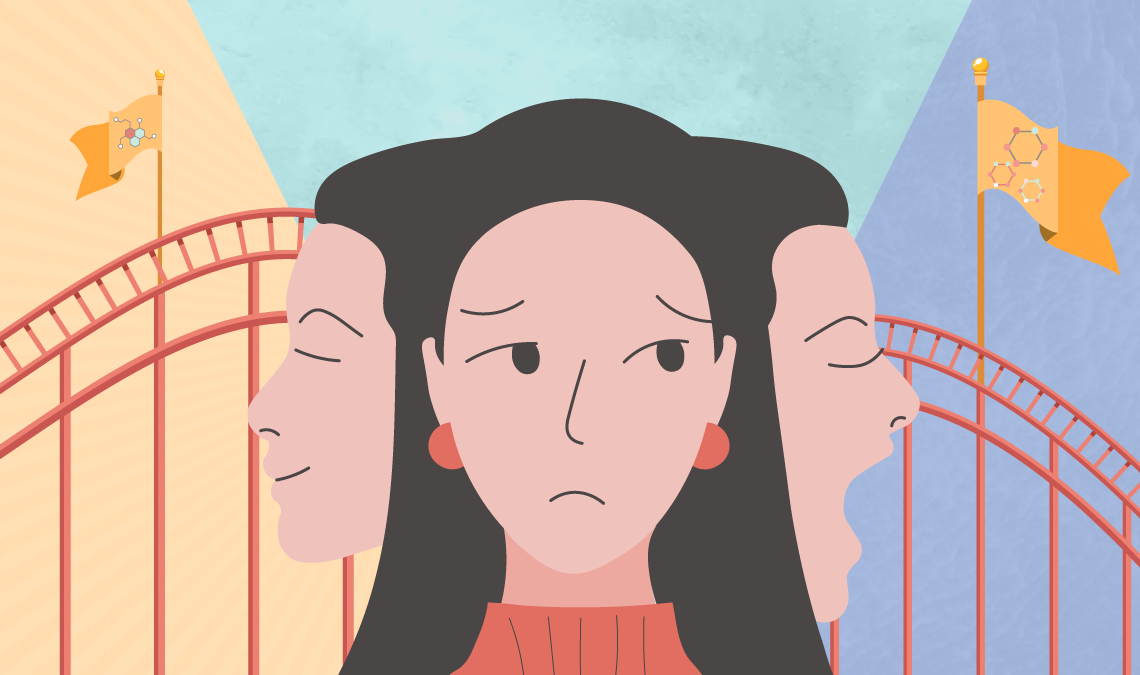Understanding the ebb and flow of hormones throughout your menstrual cycle can be key to managing your emotional well-being. From the highs of ovulation to the lows of menstruation, hormonal fluctuations play a significant role in shaping your mood and overall mental health. In this guide, we’ll delve into the intricacies of these hormonal shifts and explore strategies to help you navigate them with grace and mindfulness.
The Menstrual Cycle: Hormonal Roller coaster or Harmonious Symphony?
The menstrual cycle is a complex interplay of hormones orchestrated by the hypothalamus, pituitary gland, ovaries, and uterus. While the length of the cycle can vary from person to person, it typically spans around 28 days, divided into four main phases: menstruation, follicular phase, ovulation, and luteal phase.
Menstruation:
- The menstrual phase marks the shedding of the uterine lining, accompanied by a decline in estrogen and progesterone levels. This hormonal shift can contribute to feelings of fatigue, irritability, and sadness in some individuals. Practicing self-care during this phase, such as getting adequate rest, gentle exercise, and nourishing your body with nutritious foods, can help alleviate symptoms and promote emotional well-being.
Follicular Phase:
- As menstruation ends, the follicular phase begins, characterized by rising levels of estrogen. This hormone is known for its mood-boosting effects, promoting feelings of vitality, optimism, and increased energy. Harnessing this surge of estrogen, you may find yourself more social, outgoing, and adventurous. Engaging in activities that bring you joy and fulfillment, such as spending time with loved ones or pursuing hobbies, can enhance your mood during this phase.
Ovulation:
- Ovulation marks the release of an egg from the ovary, accompanied by a peak in estrogen levels and a surge in luteinizing hormone (LH). This hormonal peak can elevate mood, enhance cognitive function, and boost libido, making this phase a time of heightened vitality and confidence for many individuals. Embracing this surge of energy, you may feel more assertive, creative, and motivated to pursue your goals. Prioritizing self-expression and engaging in activities that align with your passions can help channel this energy constructively.
Luteal Phase:
- The luteal phase follows ovulation and is characterized by elevated progesterone levels, along with a slight rise in estrogen. While progesterone has a calming effect on the body, it can also contribute to mood fluctuations, anxiety, and irritability in some individuals. This phase is often associated with premenstrual symptoms (PMS), such as mood swings, bloating, and food cravings. Practicing stress-reduction techniques, maintaining a balanced diet, and ensuring adequate sleep can help alleviate symptoms and promote emotional balance during this phase.
Strategies for Managing Mood Throughout Your Cycle:
- Track Your Cycle: Keeping a menstrual calendar or using a tracking app can help you anticipate hormonal fluctuations and identify patterns in your mood and energy levels throughout your cycle.
- Prioritize Self-Care: Incorporate self-care practices into your routine, such as meditation, yoga, deep breathing exercises, or journaling, to promote emotional well-being and resilience.
- Nourish Your Body: Focus on eating a balanced diet rich in fruits, vegetables, whole grains, and lean proteins to support hormonal balance and overall health.
- Stay Active: Regular physical activity can help regulate hormones, reduce stress, and boost mood. Aim for at least 30 minutes of moderate exercise most days of the week.
- Seek Support: Don’t hesitate to reach out to friends, family, or a mental health professional for support during challenging times. Talking openly about your emotions can help alleviate stress and foster connection.

Understanding how hormones influence mood throughout your menstrual cycle empowers you to navigate the highs and lows with greater awareness and resilience. By incorporating self-care practices, nourishing your body, and seeking support when needed, you can embrace the fluctuations of your cycle with grace and compassion, fostering emotional well-being and balance in your life. Remember, you are not alone in this journey, and each phase of your cycle offers an opportunity for growth, self-discovery, and renewal.



